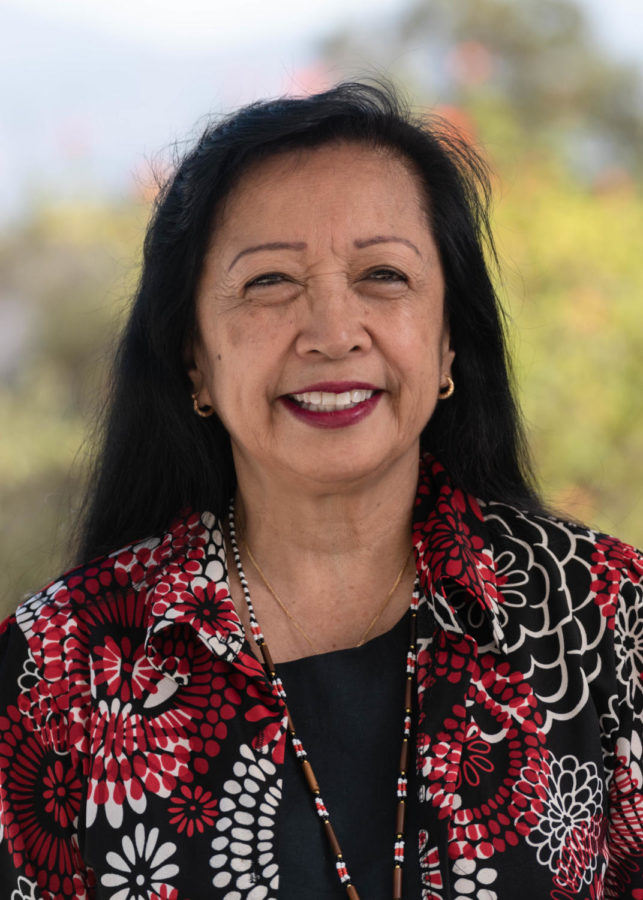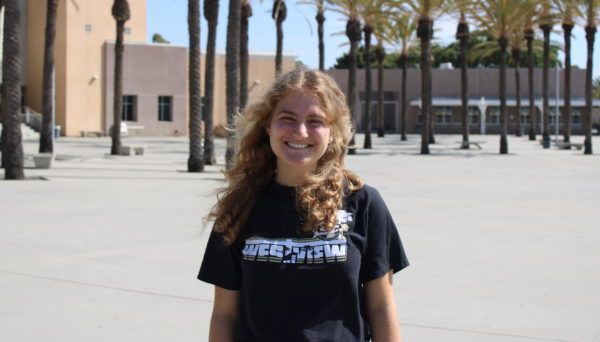Q&A with Palomar Community College District Governing Board Trustee Candidates
November 2, 2022
The Palomar Community College District Governing Board oversees the administration of Palomar Community College, which provides education to 2,500 square miles of northern San Diego County. In this year’s gubernatorial election, four candidates are running for two seats on the five-member board. Westview is located in Area 1 of Palomar’s district, whose one trustee spot is up for election. The two candidates for this position are Frank Xu and Dr. Judy Patacsil.
A Palomar Governing Board Trustee has insight into policies being made on Palomar Community College’s campus. This includes managing the college’s budget and advising the college’s executive board. Board Trustees also help facilitate partnerships between the college and community organizations, such as the partnership with Poway Unified School District for the new Poway to Palomar Middle College.
Frank Xu has a background in engineering, as well as business and financial management. Xu currently lives in Palomar’s district and says he is looking to use his experience in finance to improve Palomar’s financial situation.
Judy Patacsil has a background in education, counseling, psychology, and cultural studies. She is currently a faculty member at Miramar college and says she is looking to make sure Palomar’s policies are in the best interests of students, faculty and staff.
Frank Xu was interviewed in-person, and Judy Patacsil over the phone after a request to prepare her answers beforehand.
What aspects of your personal and professional background make you a good candidate for this position?
Xu: I have been volunteering in the community since 2014. I have been successfully managing the finances of two nonprofit organizations. That gives me the understanding of fiscal management that I believe the board really needs. And since I’m rooted in the community and I really understand what the community needs in regards of the employment opportunity and I can see the change. My engineering background shapes my thought process as well. When evaluating policies, I will always try to find the root cause, find the proof and data then develop the policy. Also needs to have evaluation of those policies so that board trustees won’t just provide lip services.
Patacsil: I am a community college graduate myself. I was born and raised in San Diego… I went to school in National City and I went to Southwestern community college. Even though I had the grades to go to university, I wasn’t at that time encouraged to go on to [university by my counselors and] I didn’t know quite how [to get there]… I got my associate’s degree, and went on and transferred to San Diego State University and got my bachelor’s degree there. I got my master’s degree as well. I later went on and got my doctorate degree in psychology with an emphasis in culture and human behavior. I definitely believe in the empowerment of communities, families, and individuals through higher education. I think my personal background makes me the best candidate [because] I’ve gone through the education system here in the United States… Education is definitely something that [was very highly valued in my family when] I grew up… I knew I wanted to work in the field of counseling at a young age, and in education as well… I’ve spent three decades in the community college system, as well as other education. I’ve worked at Miramar college… I started there in 1992, I got a full-time tenure track position working in counseling, and I worked my way up from assistant professor to associate professor to full professor… [During this time,] I taught counseling classes[,] psychology, [and] Filipino studies. I know what community college life is like for students, [and] for educators, the faculty, the staff, and the administration. I have done adjunct work with the University of San Diego, where I helped prepare incoming educators to work in the field. I have lived experience, professionally, of knowing directly what a community college is about… I have a license [not currently active] to practice mental health counseling and therapy in California [and] I’m the one who established [a mental health counseling program] at Miramar college. I don’t just talk about mental health. I have the experience of being a practitioner… [This position would] not just [be] a stepping stone for me; I love education and I was asked to run for this… My professional background [provides me with] not only the education, but the experience [that makes me] the best candidate for this position.
How do your values and mission differ from that of the opposing candidate?
Xu: My opponent [Dr. Judy Patacsil] is a professor of ethnic studies. I believe Palomar College has already done a great job on this. She won’t add more value to the college. She is endorsed and invested in by the Palomar Faculty Federation. One of the important roles of the Board Trustee is to negotiate with the Palomar Faculty Federation about their package… The Board Trustee should have no [bias]. I would argue that my opponent might compromise taxpayers’ interests to please the Palomar Faculty Federation… My donors came from all community members.
Patacsil: I believe [my opponent, Mr. Xu] is very divisive. A lot of the things he said [on his campaign website were about] ‘race is used to divide’ and I just [thought,] ‘I don’t think he understands [the community college system].’ He wants to fight diversity, equity and inclusion, but we have [DEIA initiatives being implemented in community colleges statewide]. We need to serve students in an equitable way, and [I think Xu] might see that as race-based quotas. To me, divisiveness lends to hate, and I’m definitely not [supportive of] hate… I have respect for immigrants [such as Xu], my parents are immigrants, but I don’t think [Xu] understands the educational system here [in America]. [On his campaign website, Xu] also talks about mental health. But does he really understand mental health? I don’t think so… [Overall Xu sees this position] as a political stepping stone.
What is your opinion on declining student enrollment in community colleges?
Xu: We will probably see decline in enrollment for Palomar College, considering that many students may go to the UC system, to SDSU, or to some other colleges… So we need to act first. During the way, we need to rebuild trust with the public… We need to let the parents know that this is a college focusing on education and just education. We’re not for like, some ideology or against some ideologies, we just prepare our students for their academic success. [We need to] give students vocational training, to [create] qualified police officers, firefighters, plumbers, and increase job opportunities within the local community. Second, I believe we need to enforce the drug-free policy on campus. I believe many parents will just worry about ‘what if my kid uses drugs on campus?’… We need to address the root cause of the mental health issue. For most cases, that’s their anxiety about ‘what am I going to do after I graduate?’
Patacsil: [Student enrollment] is declining across the state. A lot of it happened because of COVID-19… We’ve done surveys [which indicated] that [students] preferred to have both in-person and online learning options… [We may need to] offer some more online classes and balance that with in-person classes. We need to be attuned to… the needs of the students. As a board member, I would make sure to support policies that would address adopting new procedures and changes that also help students to succeed, to make sure that we address the mental health, the safety, and wellness of students and employees. One of the things I did at Miramar college… was [to] establish a behavioral intervention team, which collaborates with mental health, disability support, [and] campus police… to ensure the safety of the students, [and] for the campus community as a whole. Establish[ing] relationships with counselors [at local high schools] can help student enrollment so there’s [less prevalent of a] stigma that going to community colleges [is inferior to going directly to university]. Partnering with industry [or] community businesses [such as] Palomar Health [and] first responders [is also important to encourage enrollment].
Context for the next question: Both candidates discuss their views on new Diversity, Equity, Inclusion, and Accessibility (DEIA) initiatives in California community colleges. This includes new efforts to update the student grievance process for reporting acts of racism and microaggressions, and improving professional learning resources focused on structural racism. Xu mentions initiatives focused on bolstering Equal Employment Opportunity (EEO) plans that aim to take institutional bias into account when hiring employees, and cites the anti-racism movement, which includes different ideologies throughout history and in the present working to counter systemic racism.
What is your opinion on diversity initiatives in colleges?
Xu: I have been defending the U.S. Constitution, especially on the fourteenth amendment and on Article 1 Section 31 of the California constitution. That’s basically the equal protection clause… And in a college website, you probably will be able to see… Equal Employment Opportunity. So that’s basically defined by [being] derived from the constitution. However, in the current political world, there is a movement. It’s called anti-racism, and this movement from its core is not constitutional… That in turn will cause unfairness within the student body, reducing the standard for many students and many professionals… So I think that [viewpoint will] help me make this college neutral and as apolitical as possible…Those could be a student group’s idea, could be a faculty group’s idea, but that should not be the official position of the college. So basically I’m for freedom… This policy is going to hurt all people, including the minority students.
Patacsil: I think that they are very important. Accessibility [is geared towards] students who might have disabilities, who might have housing insecurity, who might have food insecurity, and so diversity initiatives in colleges address those things, and that helps students succeed… The playing field isn’t always equal… So being able to help [even out] that playing field [and] being able to help as many as possible to succeed [as opposed to a narrow group of people] is [the purpose of] diversity initiatives in community colleges.
What ideals of the Democratic and Republican political parties do you see influencing your decisions while serving as a Palomar College Governing Board Trustee? Which ones do you oppose?
Xu: We need to be as apolitical as possible. However, I still, of course, have my political beliefs… There are some mindset differences between the Republican party and Democratic… We have to be very cautious. We have to understand that the budget is not a resource, we have to get it from the taxpayers… Trustees have a fiduciary duty to taxpayers.
Patacsil: I believe the Democratic Party really believes in the value of education [and] that would influence my decisions while serving. [However,] I would want to make sure… that there be accountable spending and I think there [are] ways to be mindful about how spending affects the institution of Palomar College. Right now, [the college] is fiscally stable… and I want to ensure that that continues.



